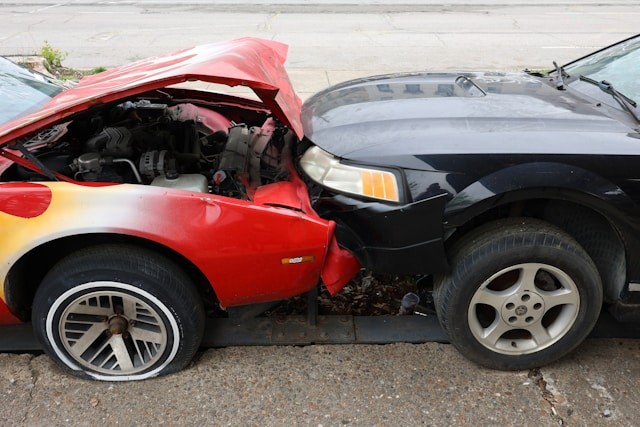A serious car accident can instantly upend your life, leaving you reeling from shock, adrenaline, or confusion amidst a whirlwind of immediate concerns: injuries, damaged property, and uncertainty about the future. Understanding how to respond in those crucial moments after the crash can make a significant difference in protecting both your physical well-being and your financial security.
This guide outlines essential steps to take following a major car accident in Oregon, from ensuring safety at the scene to understanding your legal rights, particularly if you’re dealing with an impaired driver.
Immediate Actions: Safety First
Your absolute priority after any collision is safety. If possible, carefully assess yourself and anyone else involved for injuries. Then, prioritize these actions:
- Move to a Safe Location: If your vehicle poses a danger and it’s safe to do so, pull it over to the side of the road, away from traffic.
- Call 911: Report the accident to emergency services immediately, even if you think the damage is minor. Inform the dispatcher if anyone is injured.
- Follow Instructions: Remain calm and await the arrival of first responders. Do not leave the scene unless your safety is immediately threatened.
Gathering Vital Information at the Scene
Once immediate safety concerns are addressed and emergency services are on their way, begin documenting key information. This evidence will be crucial for both insurance claims and potential legal proceedings:
- Driver and Vehicle Details: Collect full names and contact information from all drivers involved, along with driver’s license numbers, license plate numbers, and insurance details (company name and policy number).
- Witness Accounts: If possible, get the names and phone numbers of any witnesses who observed the accident.
- Visual Documentation: Take photographs and videos of:
- Damage to all vehicles involved
- Road conditions, including skid marks or debris
- Street signs and traffic signals relevant to the crash
- Weather and lighting conditions at the time
- Police Report Information: Obtain the officer’s name and badge number, and the case or report number (inquire about how to obtain a copy later).
Seek Medical Attention: Don’t Delay
It’s common to feel initially unharmed after an accident, but many injuries—like concussions, whiplash, or internal trauma—don’t manifest symptoms immediately.
Seeking medical attention promptly is essential for several reasons:
- Establishes a Record: A medical examination creates a documented record of your condition at the time of the accident, which is vital evidence in any potential claim.
- Early Intervention: Prompt treatment can help prevent complications and facilitate faster recovery from injuries that might not be immediately apparent.
- Protects Your Rights: Medical documentation supports your legal rights and strengthens your case if you need to pursue compensation for medical expenses or lost wages.
If new symptoms develop days or weeks later, consult a doctor immediately.
Notify Your Insurance Company: Be Factual, Not Speculative
Oregon is an “at-fault” state, meaning the driver responsible for causing the accident and their insurance company are typically liable for damages. However, you still need to notify your own insurance company as soon as possible after the accident.
When contacting your insurer:
- Stick to the Facts: Provide a clear and concise account of what happened without speculating about fault or admitting liability.
- Provide Supporting Documentation: Share any photos you took at the scene, witness statements, and a copy of the police report once you receive it. This documentation helps expedite your claim processing and supports your coverage for expenses.
Impaired Drivers: A More Complex Situation
If you suspect the other driver was under the influence of drugs or alcohol, clearly inform the responding officer. They will conduct field sobriety tests and document their findings in the police report. These findings can significantly impact the legal consequences faced by the at-fault driver. Accidents involving impaired drivers often involve more complex legal issues. You may be entitled to punitive damages (additional compensation beyond actual losses) due to the deliberate nature of the offense. Consult with a personal injury attorney for guidance on your specific situation.
Seeking Legal Guidance: Protect Your Rights and Interests
The Oregon Legislature provides victims with avenues for compensation, covering medical bills, lost wages, pain and suffering, and other damages resulting from an accident caused by another party’s negligence. However, navigating the legal system can be challenging, especially if there are issues of fault or liability. Consider seeking advice from a personal injury attorney as early as possible after the accident. An attorney can:
- Thoroughly review the facts of your case
- Effectively communicate with insurance companies on your behalf
- Advise you on the full extent of damages you may be entitled to recover
- Represent you in court if necessary
Getting legal counsel sooner rather than later can help prevent common mistakes that could weaken your claim.
Moving Forward: Taking Control After a Difficult Event
The aftermath of a serious car accident is overwhelming, but taking these steps empowers you to protect yourself and begin the process of recovery. If an impaired driver was involved, understanding the unique legal implications is even more crucial.
Remember, while no one expects to experience this kind of trauma, you don’t have to face it alone. With informed action and appropriate support, you can move forward with greater clarity and confidence toward healing and rebuilding your life.
